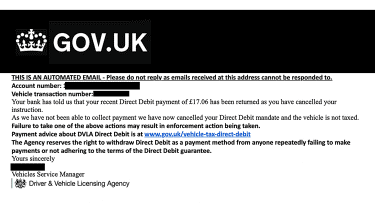Friday, 15. October 2021
Police are appealing to fleet workshops, garages and MOT test centres to support a new initiative targeting the theft of catalytic converters and other components.
The SmartWater Group, which is spearheading the new, policebacked scheme, wants them to become accredited registration hubs, after the unique identifier proved to be a deterrent.
In a recent SmartWater trial with the National Infrastructure Crime Reduction Partnership (NICRP) and the British Transport Police (BTP), thefts of catalytic converters more than halved.
Thefts peaked in March, when 3,245 catalytic converters were stolen, but they have been declining since, with 1,378 recorded in July – a 57% fall. Key to that decrease was a joint operation codenamed Goldiron, which recovered more than 1,000 stolen catalytic converters in April.
The operation, which was coordinated by the British Transport Police (BTP) and involved experts from SmartWater’s intelligence unit, the Centre for Infrastructure and Asset Protection (CIAP), also resulted in more than 50 arrests.
Over a five-day period, officers and partner agencies visited 926 sites, stopped 664 vehicles, recovered 1,037 stolen catalytic converters and 297 items of stolen property and identified 244 offences.
Rachael Oakley, director at CIAP, says SmartWater is a “highly-proven deterrent to criminals and rogue scrap metal dealers as it makes stolen parts too hot to handle”.
The heat-resistant solution, which is invisible to the naked eye but glows yellow under UV light, leaves a long lasting and unique identifier.
Oakley explained: “The combination of the materials that is put into the solution makes each individual vial unique.
“The registration of this bottle is what’s key. Every item marked with SmartWater is registered on our database.”
NATIONAL SMARTWATER DATABASE
It can be applied by brush in 10 minutes and only a fragment of SmartWater is required to link it to a specific vehicle on the ‘National Asset Database’, which is operated by CIAP on behalf of the police.
NICRP lead and BTP Superintendent, Mark Cleland, said: “Thanks to the support of the Home Office in creating the NICRP, our joint working with SmartWater and other industry partners, and the drive by enforcement partners across the UK, we have made a real impact in tackling metal and catalytic converter crime.
“While arrests continue to be made, it is the preventative approach through the forensic marking of catalytic converters that gives motorists the opportunity to protect their property and stop the crime in the first place.”
Catalytic converters have been targeted because they contain a honeycomb coated with precious metals such as platinum, palladium and rhodium which help to filter harmful gases from the vehicles’ exhaust systems.
The RAC says that when the global value of these metals increases it usually leads to a spike in thefts. Prices of rhodium hit a record high earlier this year, up more than 200% since March 2020.
In an effort to deter criminals from targeting Toyota’s cars, the carmaker joined forces with police and SmartWater earlier this year to covertly mark the catalytic converters on more than 100,000 cars.
The initiative is costing Toyota more than £1 million and will be provided to existing owners for free.
Oakley, who met the Society of Motor Manufacturers and Traders (SMMT) with the British Transport Police to discuss the initiative, believes other manufacturers are watching with interest.
OTHER SMARTWATER APPLICATIONS
She also told Fleet News that, while catalytic converters were a focus, the forensic marking could be applied to other high-value vehicle components, which could be targeted by criminal gangs.
She explained: “We can basically react to where there might be a crime spike or a trend and if fleets are asking us to help with solutions, we can look at what we can do to make sure SmartWater can assist with that.
“Criminals will move quickly; the prices of precious metals will start to come down and they’ll move on to something else.
“What we’re seeing is that’s likely to be something like hybrid batteries or electric vehicle cables.
“We’d like to get ahead of the game by putting in the preventive measures to stop these crimes becoming the issue that catalytic converter crime has become.” By Graham Hill thanks to Fleet News
Share My Blogs With Others:
These icons link to social bookmarking sites where readers can share and discover new web pages.























